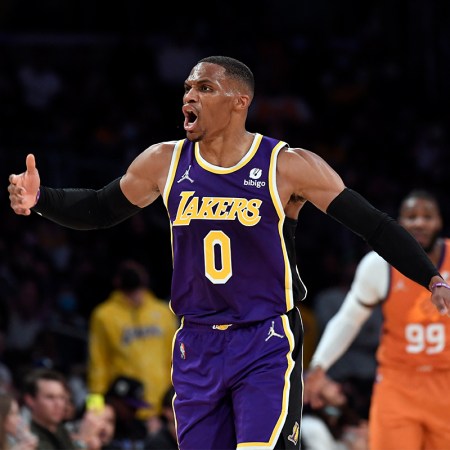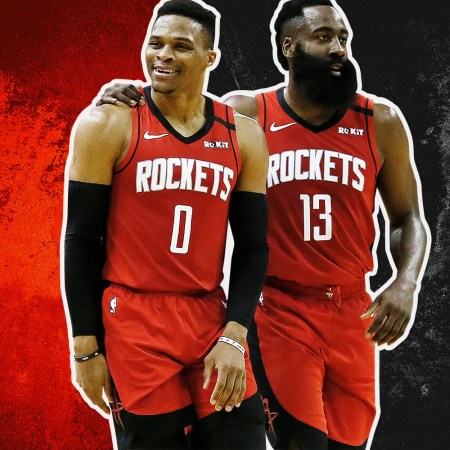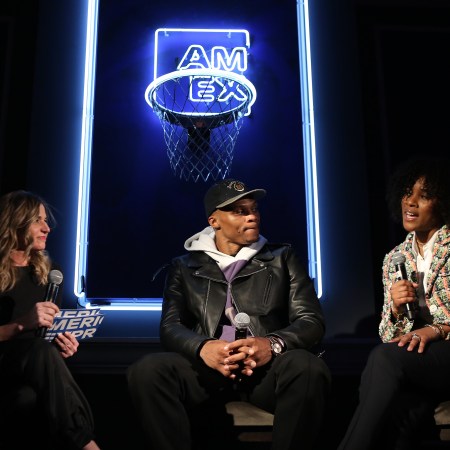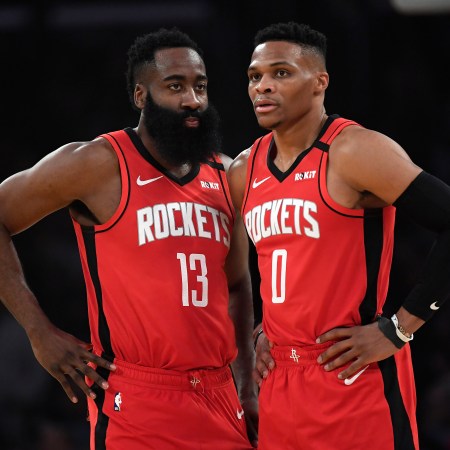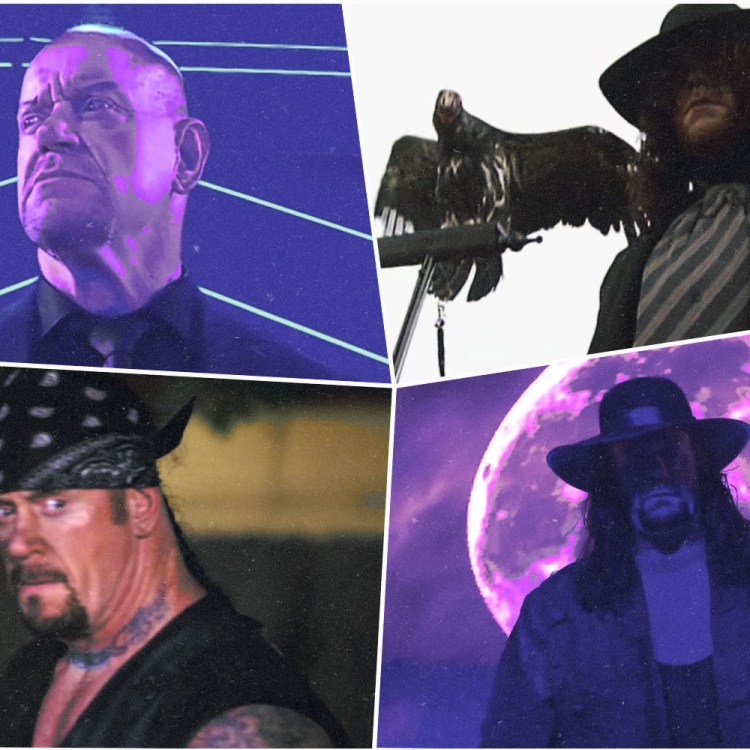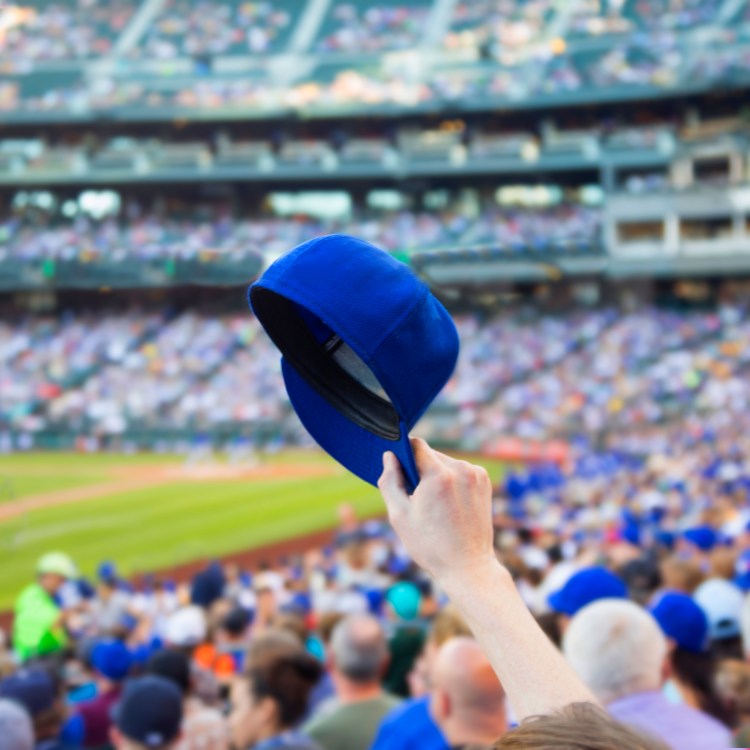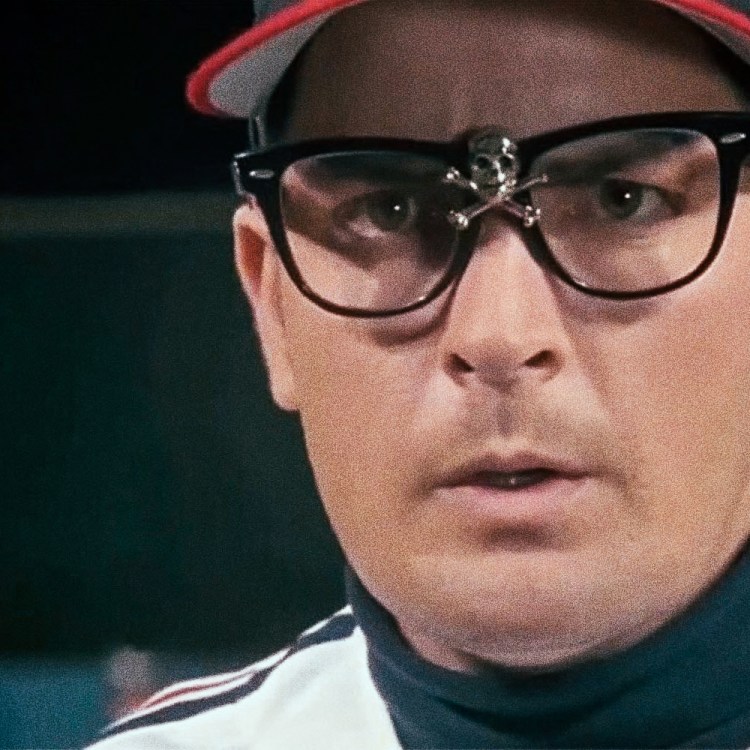If you have even a passing interest in the NBA, you probably have Takes on James Harden and Russell Westbrook. Harden, the should-be reigning MVP, is a basketball genius, coming off the single greatest offensive season a player has had since the days of Wilt Chamberlain.
Harden is also — saith some fans whose eyes run red at the very mention of the “gather step” — the king of the flop, a traveling fraud and a chronic choke artist. Westbrook, whose triple-double proclivity sparked an existential debate about the importance of numbers themselves, is either an era-defining superstar or a shameless stat-padder with a busted jumper. (An important aside: if you’re trying to convince me that a guy who has done this and this and this is bad at basketball because his field goal percentage on pull-up jump shots is low, you’re being a nerd.)
Brought together by a blockbuster off-season trade that sent Westbrook from the Oklahoma City Thunder to the Rockets, Harden and Westbrook are one of the most polarizing duos to ever grace the hardwood. But they might also be the engine room for the best team in the NBA.
Since the Rockets hired Mike D’Antoni in 2016, they’ve been defined by order: the spacing was impeccable, giving James Harden plenty of room to luxuriate in the loping rhythm of his isolation play; their switch-heavy defense lulled opponents into matching their slow tempo. At the behest of Daryl Morey, the wonky general manager who lies at the exact midpoint of WAR and world war, Houston has built its institutional identity on tiny statistical advantages, exploiting hundredths-of-a-point margins on a per-possession basis and riding these differences to the best record in the NBA over the last two years.
Besides trading Chris Paul for Westbrook — the basketball equivalent of swapping a tepid but trusty cup of Folgers for pharmaceutical cocaine — the Rockets retained the bulk of the infrastructure that propelled them over the last few seasons. PJ Tucker and Clint Capela buttress the defense, giving them the versatility to grapple with paint behemoths while also being able to down-size against smaller, faster lineups. Eric Gordon and Austin Rivers provide off-the-dribble pep and shot-making from the bench. Even Thabo Sefolosha, Gary Clark and Danuel House offer a brand of thick-chested-ness that irritates offensive weapons. Ryan Anderson is back, which is good, I guess; it’s hard to have strong opinions about the supremely washed Ryan Anderson in 2019.
Westbrook also promises to be a smoother fit than he would be at first glance. Admittedly, he is brick-y — his shooting percentages across the board hover between meh and yikes — but Houston’s system inherently eliminates inefficiencies. The steady diet of mid-range pull-ups that Westbrook so often flung against the rim in OKC are strictly verboten in Houston’s unwavering devotion to MoreyBall.
To wit, Westbrook has never played on a team with as much shooting as the Rockets, who maintain above average accuracy on historic volume. No longer burdened by sharing the court with toothless marksmen like Dennis Schroeder, Westbrook is free to gallivant into unoccupied paints and detonate on whatever poor squid rotates from the weak-side. Amidst the performative concern over whether Westbrooks plays the game the right way, it’s easy to lose sight of the fact that he is still an elite passer and slasher. Not only did he lead the league in assists last season, he was also tops in potential assists, points generated from assists, and assists off of drive-and-kicks. If nobody could stop Westbrook from getting to the rim and generating points while he was in the aptly named Brick Town, does anybody even stand a chance when he’s given time and space to breathe?
Most of all, Westbrook just makes stuff happen. The Rockets, for all their brilliance, seemed neutered and staid in their playoff losses to Golden State. Against the league’s elite, the Rockets will need to tap into Westbrook’s strain of vinegar and distorted bass as a fail-safe for the intensity and unpredictability of the playoffs.
To be sure, the Rockets are a relatively weak favorite compared to the Golden State Warriors’ reign of terror. Kevin Durant’s departure and Klay Thompson’s injury have given hope to teams across the league that they, one day, can raise the Larry O’Brien. The L.A. teams are the consensus favorites, but they face potentially crippling growing pains as they break in what are essentially brand new rosters. The Lakers have a shocking paucity of guys who can, you know, dribble; the Clippers need to remedy their downy interior defense. Although the Denver Nuggets and Utah Jazz boast enviable depth and continuity, they can’t match the Rockets’ sheer talent. The Warriors still loom in the background, but are more of a curio than a contender unless Klay Thompson returns healthy and regains his pre-injury form. Until then, tune in to see how many wins Stephen Curry, Draymond Green and D’Angelo Russell can conjure from a roster that consists mainly of Allbirds and Patagonia fleeces.
Related:
Can the Clippers Take L.A. From the Lakers?
The 2019 Uni Watch NBA Season Preview
It has become popular to say that this is the most wide-open the NBA has been in years, but cliches can only become cliches if they ring true. Westbrook and Harden are the most dynamic duo in the league and they’re supported by a rotation of well-fitting specialists. For years, Westbrook and Harden have been running parallel Marathons, but now, as they stare down the end of their respective primes, their tracks have converged and their laurels are as attainable as they have ever been, and as attainable as they may ever be. Seemingly, there is no undeniable monolith left to lay waste to the Western Conference and the Rockets have the talent and the team to fill this void. So, to quote Westbrook in his charitable efforts: Why not?
This article was featured in the InsideHook newsletter. Sign up now.

